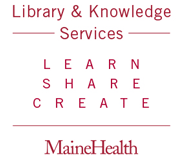Document Type
Poster
Publication Date
4-30-2020
Institution/Department
Maine Medical Center, Medical Education, Maine Medical Center Research Institute, Nephrology
MeSH Headings
Living Donors, Kidney Transplantation, Pilot Projects, Feasibility Studies, Smartphone, Software, Humans, Tissue and Organ Procurement
Abstract
Purpose: To assess the feasibility of using a smartphone application for potential living donor outreach in patients waitlisted for a kidney transplant in Maine.
Background: More than 100,000 individuals are awaiting organ transplant in the US. For patients needing a kidney transplant, living donation is a way to help meet this need. Barriers to identifying a potential donor include lack of education and hesitance to initiate a conversation about live donation. Social media has been used to assist candidates in finding living donors for over twenty years and can provide a free platform for outreach that can reduce disparities in access to transplantation. The Johns Hopkins Transplant team in collaboration with Facebook leadership has developed a mobile smartphone application called the Donor Application (DonorApp) that enables waitlisted candidates to create a social media post about their experience with organ failure and their need for a live donor. A single-center prospective cohort study of kidney- and liver-only waitlisted candidates showed favorable usability results and a six-fold greater likelihood of having a donor come forward on their behalf1.
Methods/Approach: We developed a pilot study to determine the feasibility of using the DonorApp among kidney transplant candidates in Maine. Eligible participants are adults (>= 18 years of age) waitlisted for a kidney transplant at the Maine Transplant Program who do not have a living donor available at the time of enrollment. Participants are required to have a smartphone, and must be able to read and understand English in order to navigate the application (or have a friend or family member who can fulfill this requirement). Participants are required to give informed consent and be made aware of any potential issues that may arise with social media use. The Donor Application guides users through the creation and uploading of a story to be shared on one or more social media platforms of the user’s choosing, including Facebook, Instagram, Tweeter, and WhatsApp. The study was approved by the MMC IRB.
Results: Recruitment began in November 2018, and as of February 2020 forty-three candidates have consented to participate in the study. Mean age 58 years old, 51% males, 86% Caucasian. Nearly half (n=19) of participants have uploaded stories, and eighteen donors have come forward as the result of being made aware of the candidate’s need on social media on behalf of nine candidates. Of these donors, fifteen have been ruled out following screening, two are undergoing evaluation, and two are awaiting evaluation.
Conclusions: Preliminary results suggest that the Donor Application can assist kidney waitlisted patients in identifying living donors. Follow-up education on its use may be indicated in order to ensure that usability is adequate and that barriers to use are addressed. References 1. Kumar K, King EA, Muzaale AD, et al. A Smartphone App for Increasing Live Organ Donation. American journal of transplantation: official journal of the American Society of Transplantation and the American Society of Transplant Surgeons. Dec 2016;16(12):3548-3553.
Recommended Citation
McDonnell, Shelby; Boulos, Theresa; Palma, Juan; and Rossi, Ana, "A Pilot Study on the Feasibility of a Smartphone Application for Identifying Living Donors for Kidney Transplant Waitlisted Candidates" (2020). Costas T. Lambrew Research Retreat 2020. 43.
https://knowledgeconnection.mainehealth.org/lambrew-retreat-2020/43



Comments
2020 Costas T. Lambrew Research Retreat